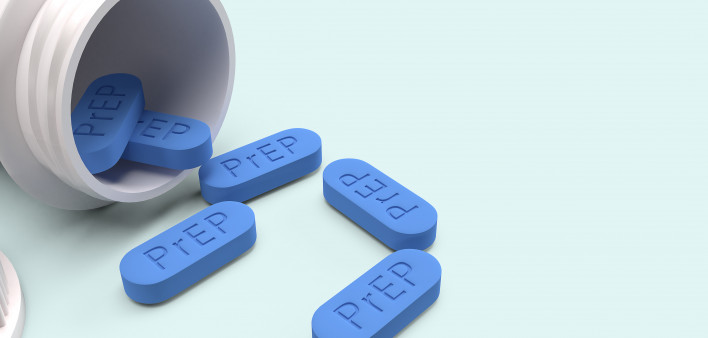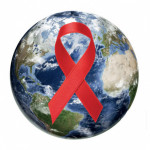To ensure that people who take pre-exposure prophylaxis (PrEP) to prevent HIV are not being improperly charged co-pays, attorneys general from 21 states and the District of Columbia signed on to a letter to a Centers for Disease Control and Prevention (CDC) committee requesting that PrEP be assigned a new diagnostic code in order to stop erroneous billing, according to the Bay Area Reporter.
"Under the Affordable Care Act [the ACA, or Obamacare], preventative services, such as PrEP, should be covered at no cost to the patient. However, several states have received complaints from patients who have been charged co-pays for covered PrEP-related services in violation of the Affordable Care Act,” reads the letter, which was sent to the coordination and maintenance committee of the CDC’s National Center for Health Statistics earlier this month.
I’m joining 22 AGs in supporting action to increase accessibility and affordability of PrEP—a critical medication that keeps people safe from HIV and saves lives.
— Rob Bonta (@AGRobBonta) March 2, 2023
My office will always fight to increase access to lifesaving medication for all who need it. https://t.co/dYjL6ckrqU pic.twitter.com/OqFdW4HJIz
“One patient in Massachusetts reported having been billed over $800 for laboratory testing that was required for the patient to receive PrEP,” the letter states. “Other patients reported smaller bills, but even a co-pay of $15 can deter patients with limited resources from seeking care."
Accessing PrEP can be challenging, but it shouldn’t be—especially for minority and underinsured people, who are most at risk for HIV. In 2020, only 25% of the nearly 1.2 million Americans who could benefit from PrEP had prescriptions, according to CDC statistics.
PrEP is available as daily oral tablets and long-acting injectables. When taken as directed, it can reduce the risk of acquiring HIV via sex by about 99%. PrEP reduces the risk of contracting HIV via injection drug use by at least 74%, according to the CDC.
Drafted by Massachusetts Attorney General Andrea Joy Campbell, the letter to the CDC suggests that ensuring proper coverage of PrEP could reduce disparities in care.
Specifically, the attorneys general request a change to the International Classification of Diseases, 10thRevision (ICD-10). The three-volume diagnostic tool is used by doctors to classify and code medical diagnoses, symptoms and claim processing. If PrEP is given its own diagnostic code, then patients would not be improperly charged co-pays and related services.
“Establishing an ICD-10 code for PrEP would create clarity,“ the letter states. ”Currently, there is no specific ICD-10 diagnosis code for PrEP. Instead, providers have a range of less specific options available to them. As such, not only are insurers and providers unsure which code is most appropriate for PrEP, the codes do not apply to solely PrEP, making it difficult for providers to indicate that the service is preventative and covered without cost sharing.”
This letter echoes the voices of lawmakers and advocates supporting the need for access to PrEP for all.
For example, California recently introduced a bill that aims to expand pharmacists’ ability to provide PrEP and post-exposure prophylaxis (PEP). The bill would also require insurers to cover the costs of pharmacists’ services and allow pharmacists to prescribe up to a 90-day supply.
President Joe Biden’s proposed 2023 budget includes contributing $9.6 billion in mandatory spending over 10 years for the creation of a national PrEP program, which the budget refers to as a PrEP Delivery Program.
In an interview with Bay Area Reporter, Card Schmid, executive director of the HIV+Hepatitis Policy Institute, said “insurers need to get their act together.”
Schmid, who worked with Campbell’s office to draft the letter to the CDC, noted that although the federal health agency has started the process to create a billing code, he hopes “the letter will add pressure on them to make sure it will happen.”
“PrEP and its associated services are supposed to be free to people with insurance. We need to make sure that anyone who wants PrEP can get it easily,” Schmid said. “Unfortunately, implementation has not gone smoothly.… We are glad that the attorneys general, who are charged with reviewing for violations of the law, are on top of it.”
The effort to ensure access to PrEP coincides with attempts by conservatives in Texas to limit coverage of the HIV prevention. For more, see “Judge Rules That the Mandate to Cover PrEP for HIV Prevention Violates Religious Freedom.”
While the CDC didn’t confirm whether PrEP will be assigned a new code, a representative from the agency told the Bay Area Reporter that “a full official list of new ICD-10-CM codes and changes, which is still being completed, is scheduled to go into effect in early October 2023.”







Comments
Comments